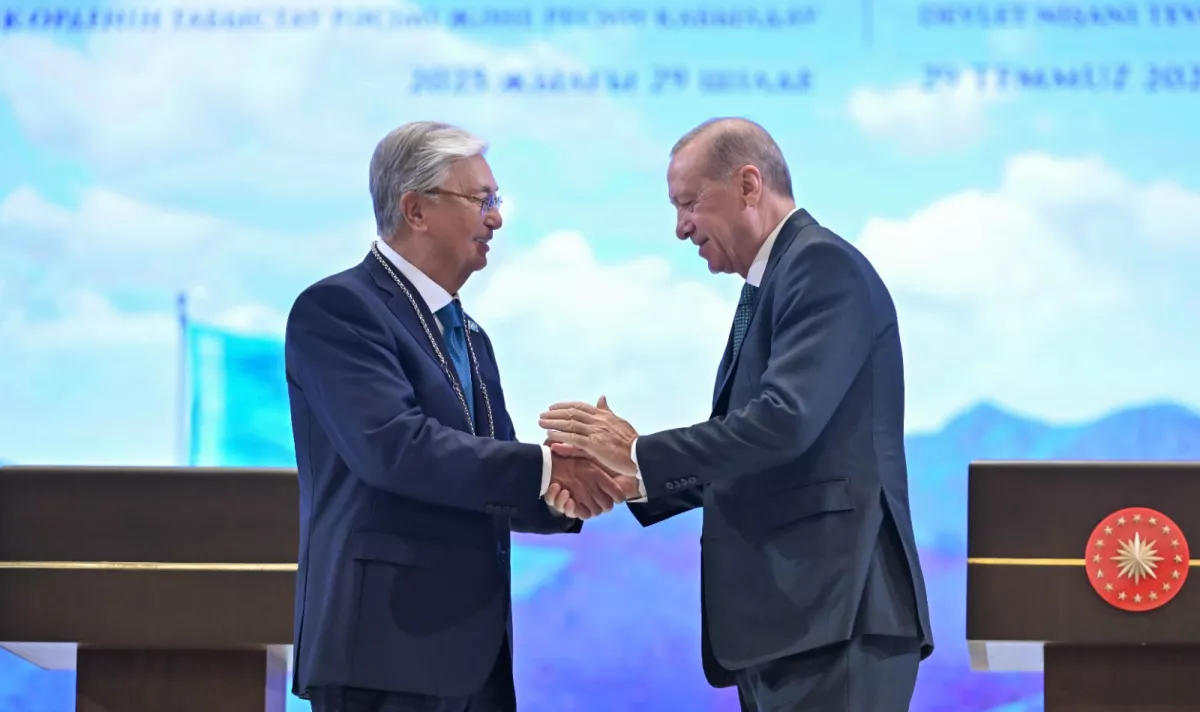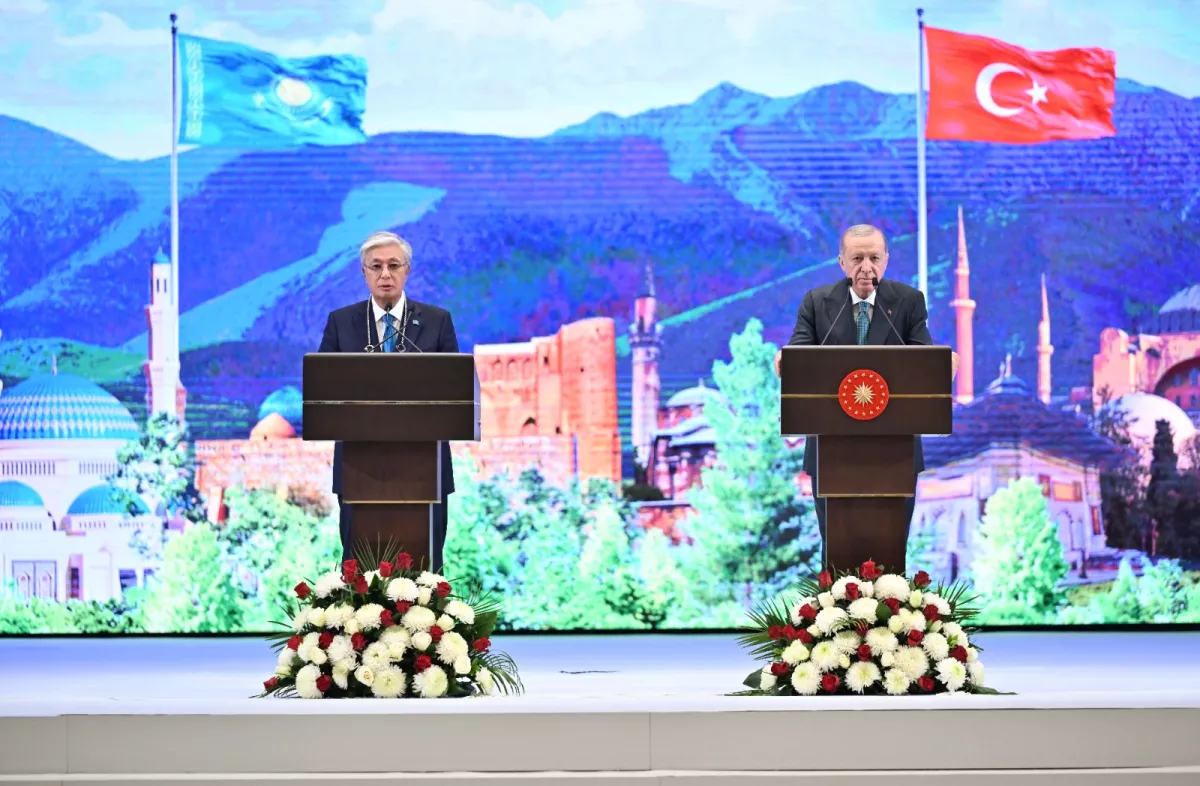A shared vision Following President Tokayev’s visit to Ankara
One of the key recent developments on the vast Eurasian agenda was the official visit of Kazakh President Kassym-Jomart Tokayev to Türkiye. The significance of this trip—and the deeply trusting, brotherly nature of the relationship between the two countries—was underscored by the fact that Turkish President Recep Tayyip Erdoğan personally came to the airport to welcome his Kazakh counterpart.
The visit’s programme was extensive and included, among other things, Tokayev’s participation in the fifth meeting of the High-Level Strategic Cooperation Council—an event that marked an important milestone in Kazakh-Turkish relations.
A central outcome of the visit was the reaffirmation of the strong political dialogue between the two nations. The presidents of Kazakhstan and Türkiye expressed shared views on a number of global challenges, advocating for the peaceful resolution of international conflicts and the reform of the global governance system.
During the talks, Kassym-Jomart Tokayev emphasised that Kazakhstan remains committed to the principles of territorial integrity and will continue strengthening cooperation with Türkiye within the framework of the Organisation of Turkic States.

Special attention during the meeting was devoted to economic issues. The two sides signed a Joint Declaration along with 20 new intergovernmental and interagency agreements, adding to an already extensive legal framework comprising over 60 documents. These new agreements span a broad range of sectors—from transport and logistics to pharmaceuticals, agriculture, energy, and digital technologies. Concrete areas of cooperation were discussed, including Türkiye’s participation in energy projects within Kazakhstan, particularly the construction of new power-generating facilities to address the country's electricity deficit.
President Recep Tayyip Erdoğan described the talks as productive and emphasised Kazakhstan’s strategic importance for Türkiye, calling it the region’s largest economy and Türkiye’s main trading partner. He noted that the meeting addressed issues of defence and energy cooperation, as well as collaboration in science, technology, and transportation. In addition, both parties explored opportunities to expand projects in the extraction and processing of mineral and rare earth resources, increase the export of Kazakh oil via Türkiye, and further develop the Trans-Caspian transport route as a modern version of the Silk Road.
The leaders of the two countries paid special attention to issues of transport integration. Against the backdrop of shifting traditional routes, the development of the Trans-Caspian International Transport Corridor—which links China, Kazakhstan, the Caspian Sea, Azerbaijan, Georgia, and Türkiye—is gaining particular importance. Kazakhstan is steadily modernising its logistics infrastructure, with ongoing upgrades to railways and highways, as well as the reconstruction of Caspian Sea ports. President Tokayev invited Turkish companies to participate in these projects, highlighting their strategic importance.
As mentioned earlier, the two sides also discussed expanding oil deliveries via the Baku–Tbilisi–Ceyhan pipeline, which would enhance the resilience of energy routes and create new opportunities amid the global transformation of the energy market. It is worth noting that currently around 80% of Kazakhstan’s oil exports pass through Russian territory via the Caspian Pipeline Consortium (CPC).

In summary, it should be noted that amid increasing geopolitical turbulence, the rapprochement between Astana and Ankara reflects not only a pragmatic approach to economic cooperation but also deeper strategic orientations, including cultural affinity, institutional interaction, and alignment of positions on the international stage.
The results of Tokayev’s visit to Türkiye underscore that the Kazakh-Turkish partnership is reaching a new level. The agreements signed demonstrate a high level of political trust and are supported by the growing economic interest of both parties in long-term cooperation. The focus is not on declarations but on creating effective mechanisms for interaction in both bilateral and multilateral formats.
President Tokayev’s visit sent a clear signal of Astana’s intention to secure its status as an active and responsible participant in shaping the new international order, where Türkiye occupies one of the key positions among its priority partners.
To understand how important the development of relations between Türkiye and Kazakhstan is for Azerbaijan, it is enough to simply look at the map. Azerbaijan serves as a bridge for a whole range of promising projects—not only for pan-Turkic integration but also for bilateral Kazakh-Turkish relations.
Adding to this is the equal mental closeness of the Azerbaijani people to both the Oghuz-Ottoman and post-Soviet Kipchak cultural codes of Turkic civilisation, which makes the country’s role in strengthening Turkic unity truly unique.
From this perspective, President Tokayev’s visit to Türkiye creates an excellent backdrop for Azerbaijan to intensify its efforts. And it will certainly take advantage of this, for the benefit of itself and the entire Turkic world.








